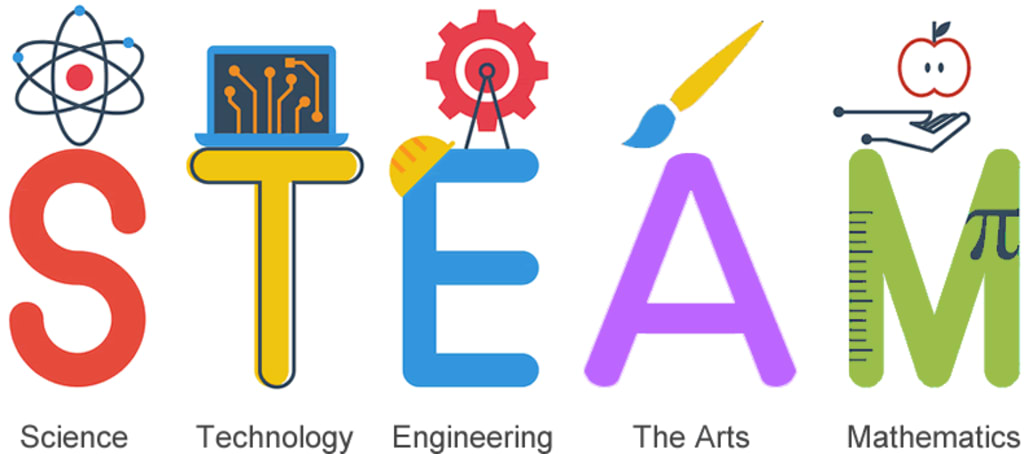Are there STEAM-based programs at an early childhood education center?
Kidzville learning center

From traditional play-based learning, these centers are increasingly pivoting towards incorporating Science, Technology, Engineering, Arts, and Mathematics (STEAM) in their curriculum. The landscape of early childhood centers has seen a drastic transformation over recent years. This paradigm shift is fueled by the recognition of the importance of equipping the youngest learners with the tools they need to thrive in an increasingly digitized and innovative world.
Its ability to instill lifelong learning skills and prepare children for the future makes it an invaluable part of modern early education. The future indeed looks bright as the world of early education continues to innovate and embrace new teaching and learning paradigms like STEAM.
Understanding the Emergence of STEAM in Early Childhood Centers:
STEAM is more than an acronym for five different fields. It represents an interdisciplinary approach, aimed at inculcating critical thinking, problem-solving skills, creativity, and innovation. Rather than teaching each field separately, STEAM integrates them into a cohesive learning paradigm based on real-world applications.
In early childhood education, STEAM doesn't just introduce young children to these fields; it also promotes exploration, encourages curiosity, and creates a love for learning. It's no surprise then that a growing number of early childhood education centers are integrating STEAM-based programs into their curriculum.
The STEAM-Based Approach in Early Childhood Centers:
Many early childhood education centers have started to weave STEAM elements into their existing curriculum. For instance, learning about shapes (a mathematics concept) can be integrated with an art project or using building blocks (engineering) to understand stability and balance.
There are also centers that offer dedicated STEAM programs, designed with age-appropriate learning objectives. These programs often use a project-based learning approach, with activities that allow children to apply the STEAM concepts they learn. This hands-on, interactive learning fosters a deeper understanding of the concepts and helps children connect their learning to real-world scenarios.
Early childhood centers have far-reaching benefits:
Enhanced Cognitive Development-
STEAM activities stimulate cognitive development, fostering skills like problem-solving, logical thinking, and creativity.
Promotion of Soft Skills-
These programs encourage children to work in teams, enhancing their communication, collaboration, and leadership skills.
Building a Foundation for Future Learning-
Early exposure to STEAM subjects can pique children's interest and make them more comfortable with these subjects in later years, opening up a wider array of career paths.
Fostering Creativity and Innovation-
With its focus on problem-solving and critical thinking, STEAM education encourages children to think creatively and innovatively.
Challenges and the Path Ahead-
The integration of STEAM in early childhood education isn't without its hurdles. For starters, educators need to be trained to deliver STEAM education effectively. There's also a need to design appropriate learning materials and invest in resources for practical learning.
However, given the array of benefits, these challenges are surmountable. As more and more early childhood education centers realize the value of STEAM-based education, it is hopeful that resources, training, and support for this approach will become increasingly available.
Importance of childhood education center:
Cognitive Development-
Early childhood is a phase of rapid brain development, with neurons forming connections at an unparalleled rate. Early childhood education centers stimulate this cognitive development through a structured yet flexible curriculum. Children are introduced to basic concepts of language, mathematics, and science, fostering curiosity and a love for learning. By nurturing cognitive skills during these formative years, these centers pave the way for academic success in later years.
Social and Emotional Development-
Apart from cognitive skills, early childhood education centers also play a significant role in a child's social and emotional development. Children learn to interact with their peers, cultivating important skills like cooperation, empathy, and conflict resolution. They also learn about sharing, taking turns, and respecting others — all essential skills for navigating social interactions in the future.
Development of Fine Motor and Gross Motor Skills-
Through a variety of activities such as arts and crafts, music, dance, and sports, early childhood education centers help develop both fine and gross motor skills. Fine motor skills involve the coordination of small muscle movements like grasping a pencil or buttoning a shirt, while gross motor skills involve larger movements like jumping, running, or balancing. These skills are critical for a child’s physical development and ability to perform daily tasks.
Preparation for Formal Schooling-
Early childhood education centers serve as a crucial bridge between home and formal schooling. They provide a structured environment where children can adapt to routines and understand the expectations of a classroom setting. The skills they learn, such as listening to instructions, participating in group activities, and managing personal belongings, help ease the transition into primary school.
Final Thoughts:
The benefits significantly outweigh these hurdles. By fostering curiosity, enhancing cognitive development, and promoting collaborative learning. Therefore preschool near me can go with this and prepare children for future careers, STEAM programs lay a strong foundation for lifelong learning and success in the modern, digital world.
Kidzville learning center has key relationships with nurturing and stimulating environment where children can learn, and play. Moreover, they develop crucial skills needed for their future schooling and life.
About the Creator
KidzVille Learning Center
KidzVille Learning center provides excellent infant toddler daycare in Surrey for children of ages 9 months to 5 years old.






Comments
There are no comments for this story
Be the first to respond and start the conversation.